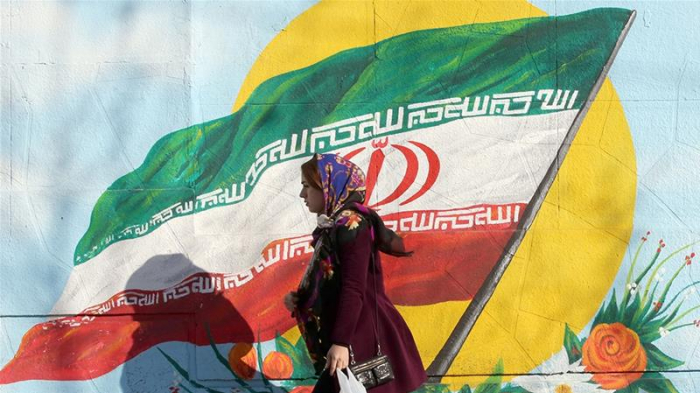Polls have opened across Iran in the country's eleventh parliamentary election, seen as a test for the popularity of President Hassan Rouhani's reformist-moderate camp, which has dominated Parliament since 2016.
Elections for Iran's 290-member Parliament are set amid escalating political tensions, economic struggles and concerns of low participation. The spectre of the coronavirus infection that has killed two people also adds another layer of uncertainty to the electoral process.
Supreme Leader Ali Hosseini Khamenei cast his vote in the capital, Tehran, minutes after the polls opened on Friday at 8am local time (04:30 GMT).
In a speech after he cast his vote, Khamenei reiterated calls for a higher voter turnout, telling Iranians to participate in the elections "if they were interested in the country's national interests".
Voters on Friday will also choose replacements for seven deceased members of the Assembly of Experts, a clerical body responsible for appointing the Supreme Leader.
Nearly 58 million people are eligible to vote on pre-selected lists of candidates that represent more than 250 registered parties. All voters must be more than 18 years of age. Almost three million are first-time voters.
A total of 55,000 polling stations have been set up at mosques throughout the country. More than 7,000 candidates, including 666 women, are competing.
Long queues could be seen at the main polling station set up at Masjid al-Nabi, the main mosque in the middle-class Narmak neighbourhood where former President Mahmoud Ahmadinejad lives.
A spokesman for the Guardian Council, Abbas Ali Kadkhodaei, said in a statement that 200,000 supervisors from the council were overseeing the polls throughout the country.
Polls are expected to close at 6pm (14:30 GMT) but can be extended. During the previous parliamentary elections in 2016, voting was extended due to a high turnout.
Also known as the Majlis, Iran's Parliament is responsible for passing legislation in the country, approving the annual budget and ratifying international agreements and treaties.
All legislation passed by the Majlis is then approved by the Guardian Council and the President.
The Parliament has a limited say in foreign affairs, although it played a crucial role in some of the country's pivotal moments, including in 2015 when it approved the nuclear deal with world powers.
The Majlis plays a bigger role in economic and other domestic politics.
The vote also sets the tone for next year's presidential elections.
Five seats are reserved for the country's religious minorities including Zoroastrians, Jews, Assyrians, Chaldean Christians and Armenian Christians.
"This vote is very important for our nation and its national interests against our enemies in the EU - France, the UK and Germany - as well as the United States," Ali Javanrodi, a 35-year-old civil servant, said.
"I am voting for candidates who will resist our enemies and unite our nation," he told Al Jazeera.
Importance of vote
The vote is key as it is the first parliamentary election since the US withdrew from the nuclear deal between Iran and world powers in 2018, and reimposed sanctions against Tehran, including on its oil and banking sectors.
The financial measures put Iran's economy into a tailspin with inflation reaching 33.5 percent and growth declining by at least six percent last year.
The vote will determine the direction of the country as it grapples with a worsening economic crisis and a punishing "maximum-pressure" campaign by the US.
Low turnout?
Despite calls from officials including the Supreme Leader Ayatollah Khamenei for a high turnout, surveys in the run-up to the vote indicated a potentially lower voter attendance than at previous parliamentary polls four years ago.
Sitting at a park in Tehran, Mohamed Feli, 31, sipped a cup of tea and chatted with his friends. He told Al Jazeera he had no intention to vote.
"I won't be voting because the elections in Iran are useless. They make no difference and aren't even free and fair," he said. "We don’t want this regime any more."
In addition to the deteriorating economy, which officials blame on US sanctions, some voters said they would boycott the vote because of a deadly crackdown by security forces on tens of thousands of people protesting against fuel price rises in November.
Key points
For most voters, the most important issue in the election is the economy. Other key concerns include corruption, foreign affairs and the nuclear deal.
"This vote is about Iran's economic conditions. We want a Parliament to resolve our high levels of unemployment and poor living conditions," Mohamed Maleki, a 31-year-old journalist from Tehran, told Al Jazeera.
Ahmad Torkashavan, 55, a former Revolutionary Guard Corps (IRGC) soldier who participated in the Iran-Iraq war at the age of 14 and then joined the Revolutionary Guard afterwards, said: "I feel it is a national duty to [vote], despite the difficult economic conditions that have discouraged some people".
Parliamentary candidates in Iran are usually aligned with reformists or conservatives as the two main political currents.
But this time, the election will likely be a competition between conservatives supporting Tehran's former mayor Mohammad Bagher Ghalibaf, who backed the 2015 nuclear deal and ultra-conservatives who rejected it.
All ballots are counted manually, delaying official results for up to two or three days after the vote.
More about: Iran















































